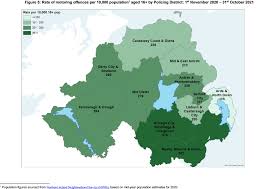Understanding the Role and Recent Actions of PSNI

Introduction
The Police Service of Northern Ireland (PSNI) plays a pivotal role in maintaining law and order in Northern Ireland. As recent events have highlighted, the PSNI’s effectiveness and accountability are crucial for community safety and public trust. Growing concerns regarding crime rates, community relations, and police conduct have made it a topic of considerable discussion across the region.
Recent Events and Developments
In the past few months, the PSNI has faced scrutiny related to a series of high-profile incidents. These include protests against police conduct, especially in areas affected by historical tensions. Notably, the PSNI has been addressing the community’s calls for improvements in policing methods and greater transparency in operations. In a recent report, an independent review commissioned by the Northern Ireland Executive underscored the necessity for reform and outlined various strategies to enhance public trust.
Additionally, the PSNI has actively engaged with local communities to foster better relationships. Initiatives such as community policing efforts have been sought to rebuild trust, particularly in underrepresented areas. The introduction of more community liaison officers is a step towards creating a more proactive policing model that prioritises engagement over enforcement.
Challenges Ahead
Despite their efforts, the PSNI continues to encounter significant challenges, particularly related to budget constraints and resource allocation. The service has reported increased demands on officers, especially in the wake of civil unrest and ongoing issues with public safety. As crime rates have fluctuated, the PSNI faces the dual challenge of tackling crime while maintaining positive community relations.
Moreover, the political landscape in Northern Ireland remains volatile, further complicating the PSNI’s initiatives. Calls for accountability and reform persist, especially concerning its handling of historical policing practices and the legacy of the Troubles. The PSNI has stated its commitment to addressing these historical issues, but progress remains slow amidst scepticism from various community leaders.
Conclusion
The ongoing developments surrounding the PSNI illustrate the complexities of policing within a historically divided society. As the service adapts to meet evolving community expectations, the emphasis on transparency, accountability, and community involvement will be critical. Moving forward, it is vital for the PSNI to cultivate cooperative relationships with the public while navigating the challenges of contemporary policing. The governance of the PSNI will significantly influence the community’s safety and resilience in Northern Ireland, making it an issue worth watching as it unfolds.








